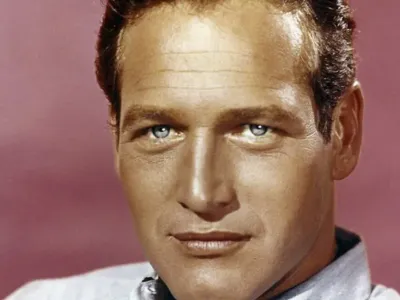Paul Newman: “I saw myself as a mix, a little bad, but mostly good.”
Decades into his successful acting career, Paul Newman made a shocking confession. In his 60s, after starring in classic films like “Cat on a Hot Tin Roof” and “Cool Hand Luke,” he admitted, “I don’t know anything.”
A Remarkable Career and Personal Life
Newman was not just a star. He was a celebrity idolized for his calm manner, piercing blue eyes, and marriage to Joanne Woodward. He raised a family, advocated for liberal causes, drove racecars, and immersed himself in philanthropy. Despite all these achievements, he was constantly plagued by self-doubt. He questioned his choices and was haunted by past mistakes.
Lifelong Insecurity
Newman’s insecurity is a major theme in his posthumous memoir, “The Extraordinary Life of an Ordinary Man.” The book, released by Knopf, is striking for its candor. Newman reflects on his difficult childhood, his first marriage, his drinking problems, and the tragic loss of his son, Scott.
Revealing Vulnerability
Newman’s vulnerability is surprising, even to those who knew him well. His youngest daughter, Clea Newman Soderlund, said she thought he was “Superman” until her early 20s. The memoir reveals the complexity and trauma he faced throughout his life.
The Making of the Memoir
The memoir is not a typical autobiography. It is compiled from interviews Newman gave to his friend, screenwriter Stewart Stern, between 1986 and 1991. These interviews, thought to be lost, were rediscovered along with conversations Stern had with Newman’s family and colleagues.
Screenshot
Honest Reflections
In the memoir, Newman is brutally honest. He talks about his antisemitic experiences during his childhood and in the Navy. He describes his first marriage and how his life changed when he met Joanne Woodward. Their affair and subsequent marriage brought both passion and regret.
Struggles and Successes
Newman’s career was filled with highs and lows. He was nominated for 10 Academy Awards, winning for “The Color of Money.” Yet, he battled with drinking and was devastated by his son Scott’s death in 1978. Newman admits that no apology could make up for his mistakes.
Discovering the Interviews
The raw interview transcripts were found by family friend Emily Wachtel in a locked cabinet and storage unit. These discoveries were both a burden and a revelation for Newman’s daughters, who found it hard to read through their father’s deep sadness.
Preserving a Legacy
Newman’s daughters decided to use the interviews for both a memoir and a documentary mini-series, “The Last Movie Stars,” directed by Ethan Hawke. They felt it was crucial to preserve and share their father’s true legacy.
A New Perspective
The book has given Newman’s daughters a new perspective on their father. They appreciate his honesty and the heavy introspection he went through. Despite his fame, Newman believed that the core of who he was remained unexplored and unknown.
